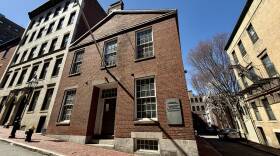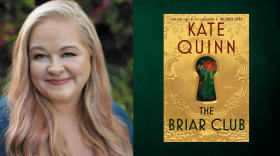-
These places west of Boston might have a better claim as the birthplace of the Revolution
The British had already lost control of most of Massachusetts before the Battles of Lexington and Concord. -
Before the American Revolution, these Massachusetts publishers rebelled in print
Newspapers like the Massachusetts Spy published bold, new ideas — and the shortcomings of their British leaders. -
Meeting the man behind the Paul Revere myth
With the 250th anniversary of Revere’s midnight ride fast approaching, Old North Church and the Paul Revere House are bringing more diversity into their coverage of the American Revolution. -
Mass. Museum of African American History loses federal grant
The president of the state’s Museum of African American History, which has locations in Boston and on Nantucket, is worried about the president’s call to reframe history. -
Were Paul Revere’s political cartoons more influential than his midnight ride?
The Bostonian is best known for his perilous horseback journey 250 years ago. But scholars say his art helped fan the flames of dissent. -
In Boston’s Green Dragon Tavern, revolutionaries brewed their plans for resistance
The original tavern was a favorite spot of early colonial Americans like Paul Revere and Samuel Adams. -
Boston doesn’t have a Malcolm X monument. But one could be coming.
As the city approaches what would have been the slain civil rights activist's 100th birthday, leaders are exploring the idea of a monument to recognize him. -
‘A vehicle of genocide’: These Mass. towns were founded on the killing of Native Americans
Estimates say that millions of dollars and tens of thousands of acres of land throughout New England were given to soldiers who scalped Native Americans. -
New exhibit celebrates a quintessential New England sport born in Worcester
The Worcester Historical Museum exhibit comes as many candlepin bowling alleys have closed in recent decades. -
Beyond the Page with Kate Quinn
Kate Quinn is a New York Times and USA Today bestselling author of historical fiction. A native of Southern California, she attended Boston University, where she earned bachelor’s and master’s degrees in classical voice. She’s written a number of novels, including four in the Empress of Rome Saga and two set in the Italian Renaissance before turning to the 20th century with books like The Alice Network, The Huntress, The Rose Code, The Diamond Eye, and most recently, The Briar Club.
She and her husband now live in Maryland with three black rescue dogs. Check out more about Kate Quinn here.
GBH's Craig LeMoult moderates the conversation.Partner:GBH Events









